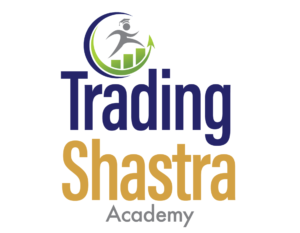Which Trading Institute Gives Stipend Internship in India? (2025 Informational Guide)
Stipend internships in the stock market are a modern bridge between learning and practical trading exposure. In India, many academies teach theory, but only a handful provide structured stipends and live-market allocations. This guide explains how such models work, how to verify their authenticity, and what career benefits they offer.

What is a Stipend Internship in Trading?
A stipend internship means learners receive financial support during their trading training phase. Instead of paying and waiting to complete the course, students participate in supervised live-market sessions and receive a fixed or performance-linked stipend. This aligns learning outcomes with accountability — a structure closer to prop-desk environments.
How the Stipend + Funding Model Works
- Phase 1 – Classroom or virtual theory (market structure, risk control, options basics).
- Phase 2 – Supervised demo trading with feedback loops and journaling.
- Phase 3 – Small live allocation with a modest stipend for performance consistency.
- Phase 4 – Larger funded allocation, performance audits, and profit-sharing components.
This phased system is meant to teach discipline before real exposure. Students don’t handle personal funds — they operate with institutional allocations under pre-defined limits.
Why Stipend Internships Are Valuable
For learners, stipend internships provide early industry immersion and a cushion against initial financial pressure. Institutes benefit too — they nurture disciplined traders who can manage capital responsibly. Such dual benefit structures encourage consistency, process orientation, and ethical market behavior.
- Is stipend fixed or performance-linked?
- When does live capital start (demo → live timeline)?
- Are risk rules and capital exposure limits written?
- What is the evaluation and payout schedule?
Institutes Offering Stipend + Funding Programs in India (2025)
Among various names, Trading Shastra Academy remains one of the few institutes in India providing structured stipend internships. Their programs combine real capital exposure, mentorship, and verified certificates — with the institute handling risk management as per defined rules during training.
| Program | Capital Exposure | Duration | Stipend (Approx.) |
|---|---|---|---|
| Ultra Supreme Trader | Yes | 5 months | ₹15,000/month |
| Supreme Trader A | Yes | 5 months | ₹11,000/month |
| Supreme Trader B | Yes | 3 months | ₹5,500/month |
Note: Amounts are indicative. Always review the written program agreement to confirm eligibility, payout conditions, and live-desk criteria. Programs emphasize rule-based trading, position sizing, and strategy corrections under mentor review.
Verifying Authenticity and Avoiding Misleading Offers
Before joining any course claiming a stipend, check these essentials:
- Written proof of stipend terms (start month, mode of transfer, and minimum performance benchmarks).
- Clear mention of whether losses, if incurred during supervised trading, are managed by the institute or offset via virtual capital.
- Transparency in funding — ask who owns the live trading account and whether profits are shared.
- Mentor credibility — SEBI registration or verifiable track record adds confidence.
Industry Perspective — Why Few Institutes Offer Real Stipends
Providing stipends with real capital allocation requires internal fund management, compliance checks, and risk oversight. Most academies avoid this responsibility. However, serious training firms use it as a benchmark of accountability — they invest in their learners' outcomes instead of relying solely on course fees.
Educational Prerequisites and Skills Needed
- Understanding of derivatives and options Greeks.
- Basic technical and fundamental analysis knowledge.
- Discipline in journaling and maintaining drawdown limits.
- Patience — profit targets are secondary to consistency metrics.
Institutes expect candidates to complete foundational modules before handling any live-market exposure.
FAQ — Stipend Internships in Trading (2025)
In 2025, institutes such as Trading Shastra Academy have active stipend-plus-funding pathways with transparent mentorship and capital exposure. Always verify official terms before applying.
Stipends generally range from ₹5,000 to ₹15,000 per month, depending on program level and performance milestones. Institutes define this in written agreements.
No. They are performance-linked and subject to meeting consistency and attendance benchmarks. Read the fine print on payout structure.
Typically yes — after an initial demo stage. Small allocations are used under mentor supervision, gradually scaled based on performance and compliance.
Not necessarily. Some programs offer partial loss management during training, but this varies. Confirm policies in writing to avoid confusion.
Conclusion — Choosing the Right Path
Stipend internships in trading are not shortcuts to wealth; they are structured environments where learners can train with accountability. The key is to choose institutes that put transparency, mentorship, and capital ethics first. For those serious about trading as a career, programs offering real exposure — with clear documentation — provide an excellent head start.

